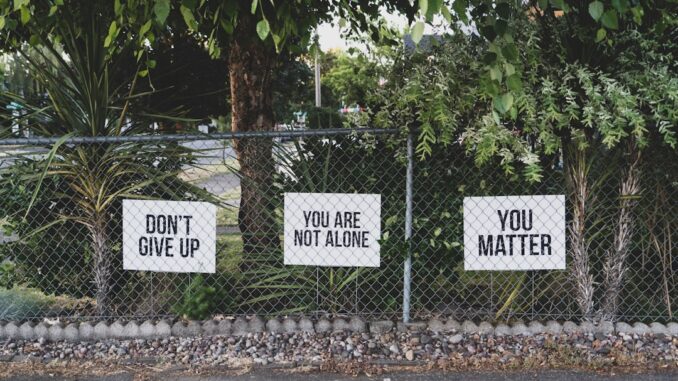
Summary
Strong friendships are essential for sustained recovery, offering emotional support, accountability, and a sense of belonging. This article provides actionable steps to build and nurture these vital relationships, fostering a fulfilling life in sobriety. Recovery is a journey, not a destination, and supportive friends make all the difference.
** Main Story**
Alright, let’s talk about something super important for long-term sobriety: building a solid group of supportive friends. It’s like, you can’t really do it alone, can you? It’s absolutely key. This isn’t just about having people to hang out with; it’s about creating a safety net that helps you stay on track.
So, where do you even start?
Embrace the New You
First off, think of recovery as a totally fresh start. And you know what? That means reassessing some of those old friendships. Sometimes, tough as it is, you have to distance yourself from people who aren’t exactly cheering you on, or worse, might actually be a trigger. It’s not easy, letting go of relationships that have been a part of your life, but it opens up space for people who do support your sobriety.
Instead, zero in on your good points; I mean what do you bring to the table as a friend? Are you funny? Adventurous? Always there to lend a hand, or just a great listener? Tap into those strengths; that’s what’s going to draw in the right kind of folks. People, who appreciate the awesome person you are, now.
Get Out There and Meet People
Look, as adults, we often get stuck in a rut, mostly just seeing coworkers and family. But if you’re serious about building a strong support network, you’ve got to actively seek out new people, particularly those who are into the same healthy stuff you are. Twelve-step programs are fantastic for this, and I’d really suggest you look into one. But that’s not the only avenue, you know?
- Join a fitness class or a sports team. I always think people are far more friendly, when they’re sweaty…
- Volunteer at a local non-profit. Doing good, and meeting good people.
- Take up a new hobby like painting or pottery. Unleash your inner artist!
- Join a book club or hiking group. Knowledge, and fresh air, the keys to success!
- Attend workshops or retreats. Time to get away and find your inner peace.
Cultivate the Connections You Already Have
Sometimes those close friends are just waiting to be found. You know, they’re maybe just casual acquaintances right now, waiting for something to spark. Why not make the spark yourself? Strengthen existing bonds and broaden your circle by being the one to organize social stuff. Game nights, potlucks, or even just a chill movie marathon. Keep it low-key and substance-free, so you can really connect without any pressure. Plus, especially early on in recovery, you’re in control of the vibe, which means minimizing potential triggers. That’s always a good thing, trust me.
Embrace New Experiences
Stepping outside your comfort zone – while still fiercely protecting your sobriety, of course – can lead to some incredible, unexpected friendships. Say “yes” to social invites, even if they’re for things you’ve never tried before. I remember once, I reluctantly agreed to go rock climbing, and ended up bonding with someone over our shared fear of heights! New places, diverse people…it all helps you paint a clearer picture of the life you want in recovery. And hey, new friends are a pretty sweet bonus, right?
Quality Over Quantity, Always
Don’t get hung up on having a massive social circle. A few really solid, trustworthy friends are worth way more than a zillion superficial ones. Focus on building deep connections with people who are genuinely invested in your well-being, people who’ll have your back no matter what. Oh, and patience is key here. Let those friendships grow naturally, you can’t force it, that’s for sure.
Navigating Tricky Friendships
Let’s be real, not everyone is going to understand your journey. Some friends might struggle to adjust to the new you, and that’s okay… sort of. Here’s the deal on dealing with those situations:
- Stand strong: Your recovery is your call, end of story.
- Boundaries are your friend: You don’t have to spill every detail to everyone. Share what you’re comfortable with, and nothing more.
- Try to see their side: Even if you don’t agree, understanding where they’re coming from can make things smoother.
- You come first: Your recovery is priority number one. If someone is consistently undermining you, distance yourself. It’s tough, but necessary.
- Don’t be afraid to lean on your support system: Talk to your understanding friends, family, or a therapist. Get that encouragement you deserve.
Stay Connected to Your Recovery Network
I can’t stress this enough: stay plugged into your recovery network. Whether it’s in-person meetings or online groups, keep that sense of community alive. Shared experiences, valuable support… it all boosts your confidence and keeps you committed. Relapse is always a possibility, and let’s be honest, knowing you have sober friends to lean on when things get tough can make all the difference. You’ve got people who get it, who won’t judge, and who’ll hold you accountable when you need it most.
Final Thoughts
Building these friendships takes work, no doubt about it. But seriously, the payoff is huge. You get emotional stability, people to hold you accountable, and that feeling of belonging we all crave. That’s the foundation for a truly fulfilling life in recovery. So, as you rebuild your life, remember those healthy relationships are the cornerstone of lasting sobriety. It’s worth the effort, I promise.


Be the first to comment